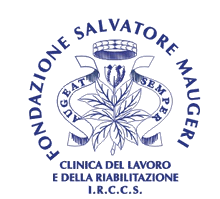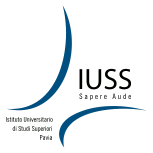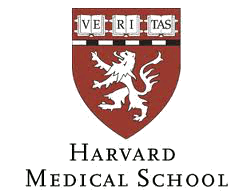
|
NETTAB 2011 workshop focused on Clinical Bioinformatics October 12-14, 2011, Pavia, Italy The workshop is held under the patronage of the Bioinformatics Italian Society |

National Cancer Research Institute of Genoa |

University of Pavia |
Invited Speakers

|
Wednesday, October 12, 2011, 3:15 PM Network Models of Mesophenotypes in Personal Genomics and Targeted Therapies Yves A. Lussier, Institute for Translational Medicine, University of Chicago, USA Yves A. Lussier is Associate Director for Informatics of the University of Chicago Cancer Research Center (UCCRC), co-Director for Biomedical Informatics of the UC Clinical and Translational Science Award (CTSA), and Director of the Department of Medicine (DOM) Center for Biomedical Informatics. He is an Associate Professor in the section of Genetic Medicine, DOM. From 2001 to 2006, has been an Assistant Professor in the Departments of Biomedical Informatics and Medicine of Columbia University. A member of the American Medical Informatics Association (AMIA) since 1990, he was inducted fellow of the American College of Medical Informatics (ACMI) in 2005. Lussier co-founded and chaired the 2009 Summit on Translational Bioinformatics of the American Medical Informatics Association. The Lussier Research Group is conducting hypothesis-driven translational research in biomedical informatics that focuses on the use of knowledge technologies to accurately individualize the understanding, prediction and treatments of diseases. |

|
Thursday, October 13, 2011, 9:15 AM From Omics to Systems Biology - an Approach to Individualized Medicine Thomas Illig, Institute of Epidemiology, Helmholtz Zentrum München, Neuherberg, Germany Thomas Illig, PhD, Molecular Biologist, group leader Research Units 'Genetic Epidemiology' and 'Epidemiology - Biological Samples - Genomics' at Helmholtz Zentrum München, Institute of Epidemiology. One group focuses on biobanking and genotyping issues as well as molecular epidemiology, while the other is concerned with genetic epidemiology of complex diseases. He is head of the biobank of the institute with more than 50.000 genomic DNA samples consisting of population-based and case-specific cohorts. His main interest is the molecular analysis of complex diseases. In the last five years he co-authored more than 100 peer-reviewed publications in leading journals such as Science, Nature, Nature Genetics and the American Journal of Human Genetics. |

|
Thursday, October 13, 2011, 2:00 PM ICT Architectures for Biobanks to Support Clinical Research Jan-Eric Litton, Department of Medical Epidemiology and Biostatistics, Karolinska Institutet, Stockholm, Sweden Jan-Eric Litton is Assistant Professor (Docent) in Biomedical Technology, Karolinska Institutet. His research interests and projects include: Biobanking: development of an infrastructure for a Biobank Information Management System - BIMS, connecting large hospital and research databases in Sweden, with the possibility of linking phenotypes and genotypes information. LifeGene: half a million Swedes will be contacted for information concerning their health, lifestyle and exposures, and for donation of blood samples. At project start, individuals will be contacted for assessments by age groups. e-epidemiology: development, implementation and exploitation of web-based questionnaires, evaluation of use of mobile phones as a tool in e-epidemiology, evaluation of the possibilities of using computerized programs over the Internet for testing physical functions connected to epidemiological trails. Textmining: creation of an extensive healthcare information discovery platform on which to develop analysis of Swedish texts. |

|
Friday, October 14, 2011, 9:15 AM Computing our Patients' Future Using Data from our Healthcare Institutions Shawn Murphy, Harvard Medical School, Boston, USA Shawn Murphy is the Associate Director of the Lab of Computer Science and an Assistant Professor of Neurology at Harvard Medical School. His current projects include Informatics for Integrating Biology and the Bedside (i2b2) and Research Patient Data Registry (RPDR). The i2b2 Center is developing a scalable informatics framework that will bridge clinical research data and the vast data banks arising from basic research in order to better understand the genetic bases of complex diseases. The RPDR is a warehouse of clinical data from Massachusetts General Hospital (MGH), Brigham and Women's Hospital (BWH), Faulkner Hosptial (FH), Spaulding Rehabilitation Hosital (SRH), and Newton Wellesley Hospital (NWH) available for research purposes. Data in the RPDR includes diagnoses, demographics, procedures, laboratory tests, medications, health maintenance and vital sign information, blood bank data, radiology and pathology reports and operative, discharge, endoscopy, cardiology and pulmonary results, as well as some genetic test data. These data are synthesized in a computerized system that allows the research community to efficiently explore connections between them, formulate hypotheses, and gather information for clinical trials. |
Scientific Programme
Overview -
Programme
Speakers
Tutorials
Posters
Presentations
Call for Papers
Overview -
Rationale
Topics -
Deadlines
Type of contributions
Instructions
Registration
Overview
Subscribe
Registration cost
Registration form
Useful Info
Contacts -
Location
How to find us
Deadlines -
Hotels
External links
Organization
Chairs
Scientific Committee
Organizing Committee
Institutes & Societies
Sponsors








